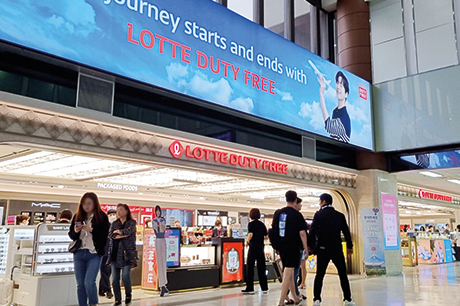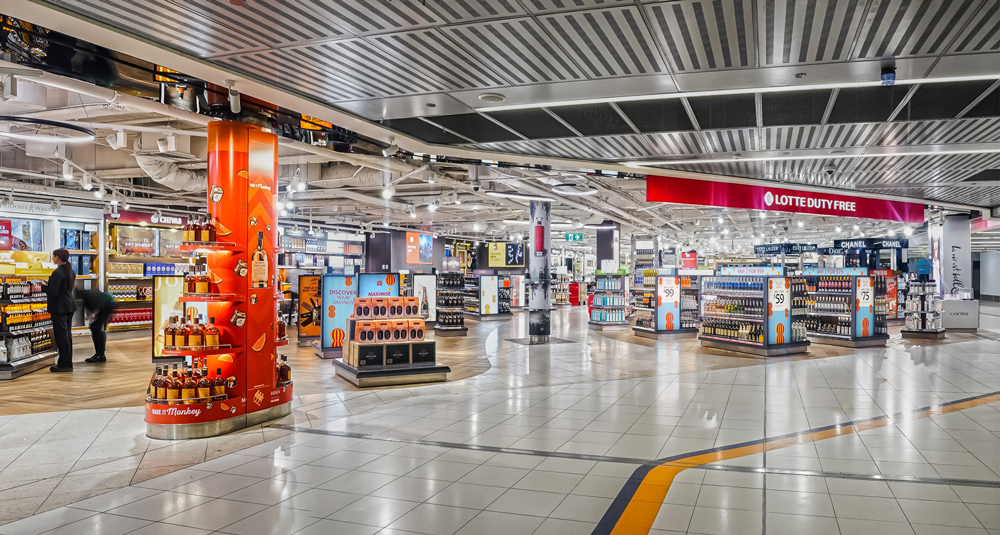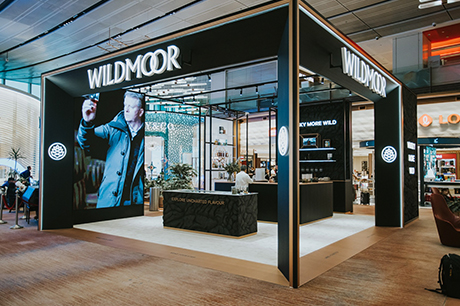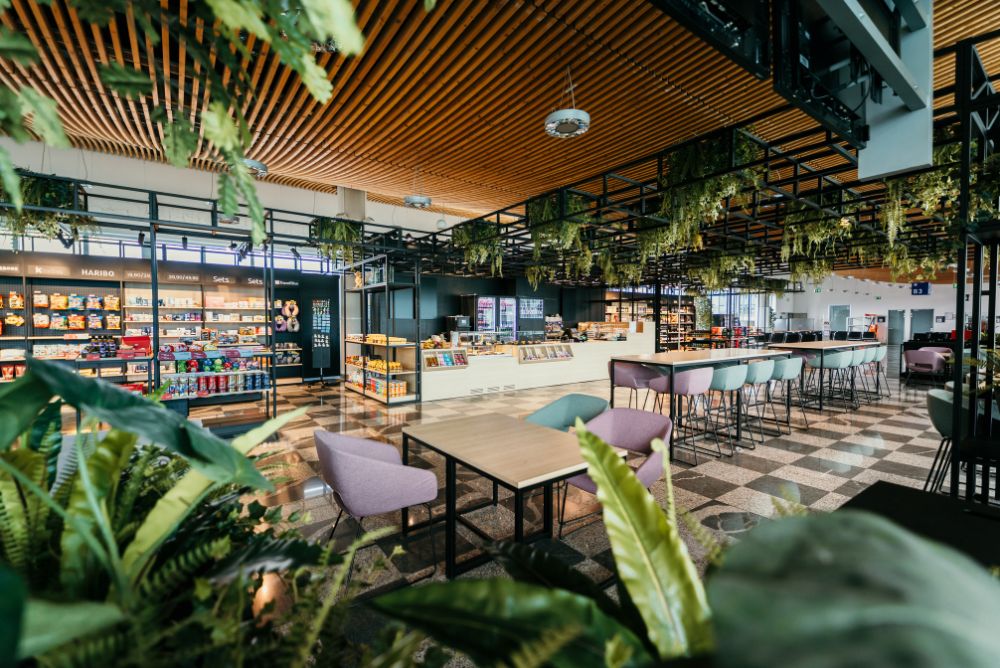Survey 2024: Lotte Duty Free talks expansion and capturing FIT spend
By Luke Barras-hill |

Lotte Duty Free’s P&C store at Gimpo International Airport in Seoul.
Business diversification via new store openings and expanding the duty paid assortment will keep Lotte Duty Free occupied this year. That’s according to Jun Young Lee, Head of Strategy & Planning Division, Lotte Duty Free, who remains upbeat about improving traveller consumption levels in comments shared with the TRBusiness Global Industry Survey.
Moreover, he believes a concentrated focus on trapping spend from free independent travellers (FITs) as opposed to group tourists will be an important focal point for DF&TR this year.
TRBusiness: How would you assess the global travel retail industry in 2023?
Jun Young Lee: In 2023, the Covid-19 pandemic ended and the tourism industry was busy preparing for normalisation. However, the speed of recovery for travel retail is not as fast as expected compared to other industries. This is because consumer sentiment has shrunk due to unstable international circumstances and inflation. There were many challenges facing the travel retail industrial environment, such as expanding individual tourism rather than group tourism, and changing travel trends.
What are your expectations for travel retail in 2024?
The number of Chinese tourists, considered a big hand in the global duty free market, is steadily increasing. However, shopping expenditures by international tourists are not larger than the travel retail industry’s expectation and recovery is slow. In 2024, the impact of interest rate cuts from the United States will be reflected, tourists’ consumption is also expected to increase compared to 2023 and the domestic and international duty free markets are expected to gradually improve from the first half.
This year, the travel retail industry is expected to centre more on FIT [free independent travellers] than group tourists. Lotte Duty Free and others are also expected to be busy reinforcing customer incentives in line with these changes and to return pre-Covid-19 sales.

Jun Young Lee, Head of Strategy & Planning Division, Lotte Duty Free.
What do you think will be the biggest challenges facing the DF&TR industry in 2024?
The most important thing is how companies respond quickly to diversified customer needs and rapidly changing travel trends. External factors due to ongoing international disputes are still expected to be variables.
And what do you expect will be the biggest opportunities for the DF&TR industry in 2024?
Changes in customer consumption and travel trends are expected to be new growth engines and opportunities. Lotte Duty Free is currently diversifying the business portfolio through the opening of new stores within the regions of strategic importance and expanding the duty paid business. Additionally, we are undertaking personalised marketing activities as part of our ongoing efforts to diversify our customer mix and not relying on a single customer segment, such as a certain nationality or age group.
The experience of the pandemic exposed the inflexibility of minimum annual guarantees, with many in the industry believing fixed rents should give way to more versatile, risk-sharing contracts. Are you seeing evidence that the concession model is changing, for better or worse?
Since last year, major airports in Korea have proposed various contract models to the duty free shops, away from the form of fixed rent contracts. Before the Covid pandemic, contracts were mainly made using a fixed rent method, various types of contract model, such as sales-linked rents that can flexibly respond to external situations, will becomethe new standard of [the] TR&DF industry in the future.
Does ‘greenhushing’ – organisations choosing to deliberately downplay or mask their sustainability or ESG credentials for fear of public scrutiny – pose a greater risk to travel retail’s development than greenwashing?
Customers are getting smarter and wiser. Customers looking for eco-friendly products are increasing, and they actively search and choose information on a company’s eco-friendly management practice policy. Rather than ‘greenwashing’, which exaggerates a company’s performance in eco-friendly management, ‘greenhushing’ will eventually lead to companies reducing their efforts to implement eco-friendly and ESG practices.
This will eventually lead to the turning away of smart consumers. The DF&TR industry should also make efforts together in various ways, including [addressing] waste of resources generated from product packaging and reduction of carbon emissions.
This article first appeared in the Global Industry Survey 2024, carried within the TRBusiness January e-zine. To read in full, click here.
READ MORE: January ezine + landmark Annual Survey

MEADFA Conference 2024 ‘heading to Abu Dhabi on 17-19 November’
This year’s Middle East & Africa Duty Free Association (MEADFA) Conference will take...
DFWC Q1 2024 KPI Monitor indicates rise in duty free impulse purchases
Impulse purchasing within global duty free is on the rise, according to the latest Duty Free...
Avolta details “bold and ambitious” goals to grow its APAC business
With a number of key developments coming to fruition, including its operations at Wuhan Tianhe...
-
 Asia & Pacific,
Asia & Pacific,MEADFA Conference 2024 ‘heading to Abu Dhabi on 17-19 November’
-

-


In the Magazine
TRBusiness Magazine is free to access. Read the latest issue now.

 Trbusiness. The travel retail Trbusiness. The magazine for global retail and duty free professionals.
Trbusiness. The travel retail Trbusiness. The magazine for global retail and duty free professionals.





















